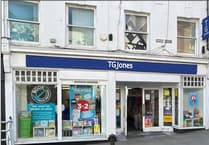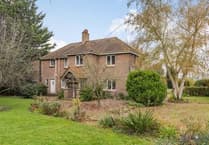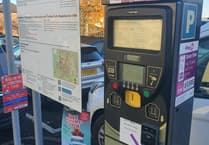CUTS in the funding Herefordshire Council gets from the government is ‘not sustainable’, a senior councillor has said.
In December the county heard it would lose nearly all of the £7million Rural Services Delivery Grant.
Despite increases in other grants, the total funding from central government has been cut by around £2.5million for the financial year from April.
“The government is now only giving us 16 per cent of our revenue, which is probably the lowest it’s ever been,” cabinet member for transport Cllr Phillip Price said.
The Cabinet member for finance Cllr Pete Stoddart agreed that compared to the council’s 84 per cent of revenue from council tax and business rates, the central government contribution was ‘very low’.
He added that the council had been planning to increase council tax in the county by 3.99 per cent for the year ahead, until the government’s announcement “blew that out the window” – obliging it to now bring in the full 4.99 per cent increase.
Additionally, Herefordshire Council says it is under extra cost pressures totalling around £26 million, due to the rise in National Insurance costs and minimum wage, increased demand for, and cost of, child and adult care, and inflation more generally.
As a consequence, Herefordshire’s draft revenue budget for the year from April totals £232 million, up from £213 million this financial year, a nine per cent rise.
However based on its spending the first half of the year, the council forecast in November that it would actually spend £223 million this year.
In the financial year ahead as it plans to make £6.9million in ‘savings and mitigations across council services’, the council stated.
Two per cent of the increase is ring-fenced for adult care, while the remaining 2.99 per cent is the maximum the council can up the tax without a local referendum.
Council leader Cllr Jonathan Lester acknowledged that the revenue support grant from the previous government had fallen from £64 million when he joined the council in 2011, to £600,000 in 2019.
But he said the grant had been an acknowledgement by the previous government of rural councils’ extra challenges.
For a typical band D property in the county, the budget plan translates into a council tax bill of £1,969.36 for the year, an increase of £7.80 per month.
But the council says it does not plan to raise parking charges, another fund-raising lever available to it.
The proposals will be debated by the council’s Cabinet this Thursday, January 23, before getting a final sign-off from a full meeting of councillors on February 7.
Cllr Lester said the decision to propose the maximum council tax increase “has been a very difficult one”, but that the council’s service costs “need to be met and funded”.
“In the context of these pressures the only alternative would have been to cut services,” he said.
He added: “We will continue to campaign hard for the government to rethink its decision to get rid of the rural services grant.”





Comments
This article has no comments yet. Be the first to leave a comment.